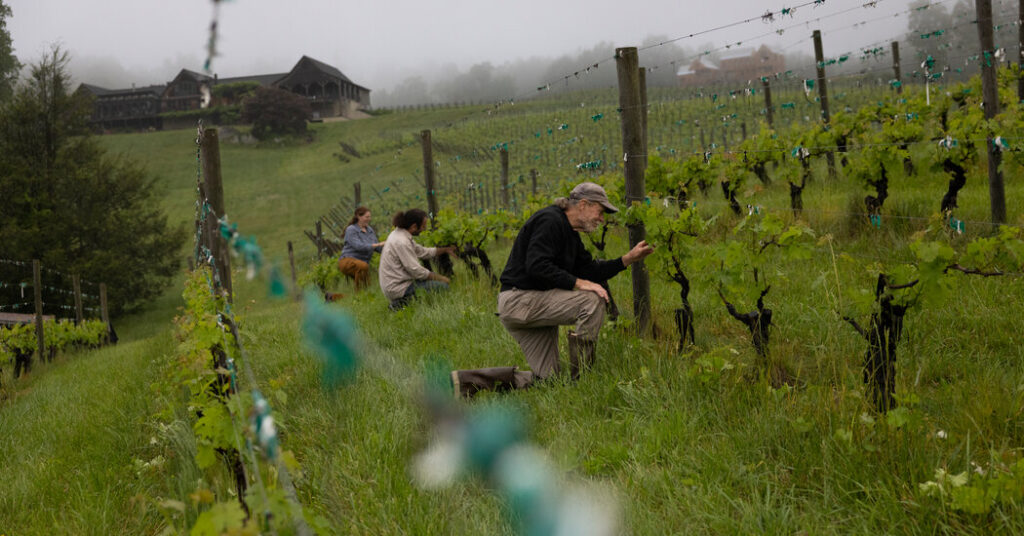While those working with vinifera grapes accept the farming limitations, others are exploring hybrids of European and American grapes, like chardonel and chambourcin, which are more resistant to fungal diseases. Winemakers Research Exchange, an industry group, is running a breeding program seeking to develop hybrid grapes that will be adapted to the specific conditions in different parts of Virginia, but those grapes are at least 10 years in the future.
“When we get disease-resistant varieties, that’s when sustainable farming will take off in Virginia,” said Tim Jordan, who nonetheless is exploring natural methods of fighting diseases. In the Jordans’ family vineyard in Fort Defiance, he spreads crab shells rich in chitin, a source for bacteria that feed on fungus. The Jordans originally planted the vineyard with vinifera grapes but, Tim Jordan said, as vines die they are replanting with hybrids.
Virginia growers also face late-season storms made far worse by climate change. Remnants of hurricanes used to move north then veer into the Atlantic off the Carolina coast, Mr. Law said. Now they frequently drive north through Virginia during harvest season. This has led many growers to turn to grapes like petit manseng, a hearty white grape from the southwest of France with lively acidity and the capacity to bounce back after storms.
Many labels are produced at Common Wealth. Midland uses grapes from the Jordan family farm, like an elegant 2022 chardonnay and a complex 2023 blaufränkisch.
Lightwell Survey is Ben Jordan’s négociant brand, making wines like a lively, pretty 2022 Hintermen, made mostly of petit manseng with some riesling. Tim Jordan makes Star Party wines, including a lovely, classic 2023 cabernet franc. Wines made by the partners or Common Wealth employees are released under the Common Wealth label, like a 2023 Mise, a gorgeous, succulent orange wine, made by Ms. Campbell mostly of petit manseng, or a bright, focused 2023 Trot Rock, made of tannat, a red grape also from southwestern France.

